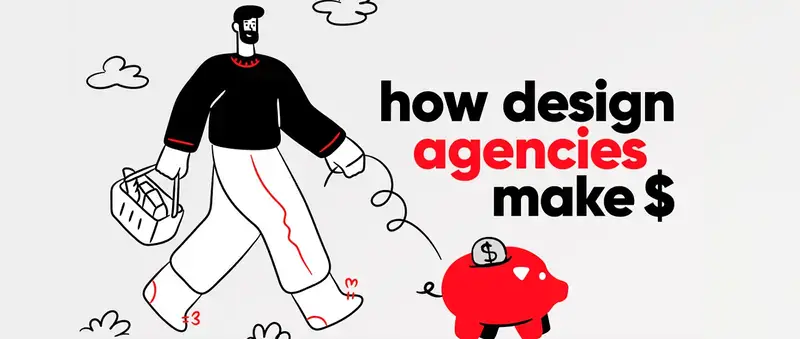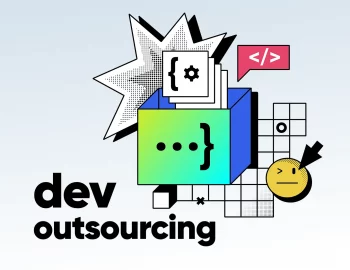Let’s be honest – nobody gets into design to obsess over timesheets. But when the hours aren’t tracked, the invoices get awkward, the budgets get blurry, and suddenly… surprise! You’re doing detective work to figure out where the week went. That’s why picking the best employee time tracking software that suits your exact workflow isn’t just a nice-to-have – it’s also how you keep your projects profitable and your team aligned.
So, to help you out, I did some digging for you. Below are 14 software tools that actually respect the creative process of your employees and make time tracking less of a buzzkill. Ready?
So, What to Look For in Time Tracking Software for Creative Agencies?
Creative teams need time tracking that fits into their flow, not fights against it. The best employee time tracking software is one that considers both creative and administrative aspects and helps with time and team management. Here’s what matters most:
- Ease of Use: If it’s not intuitive, your team won’t use it. Look for tools with clean interfaces and quick-start timers.
- Billable vs. Non-Billable Time: Essential for tracking client employee hours vs. internal work and keeping margins healthy.
- Project + Client Tracking: Helps manage budgets and clearly show where time is going across multiple clients.
- Smart Integrations: Must play well with project management and finance tools to avoid double work. Most time tracking apps have a good list of integrations, but it’s still good to be aware.
- Clear Reporting: Exportable, filterable reports are key for billing, payroll, and employee performance reviews.
- Monitoring Features (If Needed): Some tools include screen capture or activity tracking – I’ll flag those so you can choose what fits your team vibe.
So, now that you know what key points to look for in an employee time tracking software, let’s dive into the list.
1. Toggl Track
Toggl Track is kind of like the cool kid of time tracking tools – clean, lightweight, and refreshingly easy to use. It’s loved by designers, developers, and agency teams who want to track time without interrupting their flow. Whatever you’re doing (a client call, sketching wireframes, or jumping between projects), Toggl lets you start a timer with one click (or log time manually if that’s more your style).
It’s especially handy for teams that want visibility into how time is spent, without micromanaging. Plus, its reporting features make it a breeze to turn tracked time into shareable insights or exportable timesheets for clients or payroll.
Key Features:
- One-click timer, manual entries, and calendar view
- Billable vs. non-billable time tagging
- Detailed project and team reporting
- Chrome extension + mobile app for tracking on the go
- 100+ integrations with tools like Asana, Trello, Slack, and Notion
- Incredibly easy to use even for first-timers
- Great UI that doesn’t distract creatives
- Flexible tracking methods: timer, manual, or calendar-based
- Integrates with almost every tool agencies already use
Cons:
- Budget tracking and forecasting features are limited on lower-tier plans
- Lacks native invoicing or advanced scheduling features
Pricing: Free plan available; paid plans start at $10/user/month
Employee Monitoring: None
2. Harvest
Harvest is a veteran among the best time tracking software, and for good reason. It goes beyond simple timers and helps creative teams connect time entries directly to budgets, invoices, and even retainers. This makes it a fantastic all-in-one tool for agencies that not only want to track time spent but also stay on top of project financials without juggling five different apps.
Harvest makes it easy for team members to log hours via web, mobile devices, or a desktop app, and managers can keep an eye on project progress in real time. Bonus: it plays nicely with finance and project management tools like Asana, Basecamp, Trello, and QuickBooks.
Key Features:
- Easy time tracking by project or task
- Built-in invoicing and expense tracking
- Project budgeting and cost analysis tools
- Team capacity and utilization reporting
- Integrations with popular project management + accounting software
- Combining invoicing with a time tracking tool
- Great for monitoring project budgets and profitability
- Solid reporting for both clients and internal stakeholders
- Easy for team members to adopt and use consistently
Cons:
- Limited forecasting or resource planning features
- Budgeting tools are more high-level, less granular than some may need
Pricing: Free for 1 person; paid plans start at $11/user/month (unlimited users)
Employee Monitoring: None

3. Early
Early is a newer player in the time tracking space, but it’s already winning fans with its slick interface and thoughtful design. Built specifically with creative professionals in mind, Early focuses on making time tracking feel less like a chore and more like a natural part of your workflow.
It combines manual and automatic tracking with visual dashboards that help teams see where their time is going, without drowning in time tracking data. You can tag billable hours, assign time to projects or clients, and get clean, detailed reports that truly make sense. Meanwhile, it’s a simple time tracking app that doesn’t overcomplicate things, which is part of its charm.
Key Features:
- Manual and automated time tracking
- Tagging by client, project, and activity
- Sleek, real-time dashboards and analytics
- Intuitive daily and weekly views
- Built with a focus on user experience and minimalism
- Gorgeous UI that creative teams will truly enjoy using
- Very little onboarding needed – super intuitive
- Helps identify time drains and productivity patterns
- Fast, clean reporting
Cons:
- Fewer integrations than more established tools (but growing)
- No built-in invoicing or budgeting tools yet
Pricing: 30-day free trial for all plans available; paid plans start at $7.5/user/month
Employee Monitoring: None
4. Tracking Time
TrackingTime is a visual, user-friendly platform built to help teams stay organized and accountable, without overcomplicating the process. It’s especially great if you love calendar views and want to assign time entries to tasks, clients, or billable categories with just a few clicks.
It also gives Operations Managers a high-level view of who’s doing what, when, and for how long. The reporting tools are solid, and you can even set up recurring tasks and shared timelines to keep everyone aligned. Plus, it integrates with over 30 tools, so it fits nicely into your agency’s existing stack.
Key Features:
- Calendar-style time tracking and scheduling
- Billable vs. non-billable hours
- Task and project assignments with shared timelines
- Client tracking and detailed reporting
- Integrations with Trello, Asana, Google Calendar, and more
- Very visual and intuitive for team members used to calendar-based planning
- Great for tracking hours across clients, projects, and internal work
- Easy team management, scheduling, and time allocation
- Affordable for growing small teams
Cons:
- Some features (like advanced reporting) are locked behind higher-tier plans
- The mobile version of the employee time tracking app isn’t as smooth as the desktop app
Pricing: Free time tracking for up to 3 users; paid plans start at $8/user/month
Employee Monitoring: None
5. Timely by Memory.ai
Timely takes a different approach to time tracking – one that doesn’t rely on memory (pun fully intended). It uses AI to automatically track what you’re working on throughout the day across apps, documents, meetings, and websites. You get a private timeline of your activity, and from there, you can review and log how many hours you worked with just a few clicks.
This time-tracking app is a total game-changer for creatives who hate timers or simply forget to track time. It’s passive, respectful, and surprisingly accurate. Plus, Timely offers gorgeous reporting and project dashboards, making it just as helpful for managers keeping an eye on budgets and workloads.
Key Features:
- AI-powered automatic time tracking tool
- Private timeline – only you see your raw data
- Smart suggestions for logging time entries
- Visual project dashboards and capacity planning
- Integrations with tools like Asana, Notion, Zoom, and more
- No timers or manual entry – just focus and review later
- Respects privacy while improving accuracy
- Saves tons of time for people juggling multiple apps/tasks
- Beautiful UI and insightful reports
Cons:
- Slight learning curve if you’re used to traditional time tracking apps
- Pricey for teams on a tight budget
Pricing: Plans start at $9/user/month (billed annually) for automatic tracking features
Employee Monitoring: None (Tracks time activity automatically, but data stays private to the user unless shared)
6. Everhour
Everhour is a fan favorite among creative teams using tools like Asana, Trello, Basecamp, or ClickUp. Why? Because with its many integrations, it plugs directly into those platforms, letting your team track time without ever leaving their task view. That means no extra tabs, no mental gymnastics – just seamless, real-time tracking where work is already happening.
Beyond its stellar integrations, Everhour also handles budgeting, invoicing, and reporting like a pro. Managers can keep tabs on project progress, see who’s over capacity, and easily pull up reports for clients or payroll. It’s a great balance of simplicity for users and powerful insights for operations.
Key Features:
- Native integrations with top project management tools
- Real-time dashboards and detailed reporting
- Budgeting and invoicing functionality
- Timesheets and approvals
- Visual planning with resource scheduling
- Time tracking inside Asana, Trello, ClickUp, and more
- Strong budgeting + client reporting features
- Easy for teams to adopt (especially project management-focused teams)
- Clean interface with helpful visualizations
Cons:
- Requires a project management tool to get the full value
- No automatic time tracking or AI-based features
Pricing: Free plan for up to 5 users; Paid plan at $8.50/user/month, with a minimum of 5 users
Employee Monitoring: None
7. Paymo
Paymo is more than just a time tracker – it’s a full-on project management suite also made with creative teams in mind. If you want to track time, manage tasks, schedule resources, and handle billing all in one place, Paymo brings it all together beautifully.
It’s especially handy for small businesses and mid-sized agencies that don’t want to jump between five tools just to run a project. You get real-time tracking, team scheduling, Kanban boards, invoicing, and even built-in proofing for design feedback. It’s like your creative operations hub.
Key Features:
- Built-in time tracker and timesheets
- Task management with Kanban, Gantt, and list views
- Team scheduling and resource planning
- Invoicing and expense tracking
- File sharing and design proofing tools
- All-in-one solution – no need for multiple tools
- Visual task and time management options
- Great for tracking time and progress across long-term projects
- Affordable and scalable
Cons:
- Slightly heavier learning curve than lightweight trackers
- It can feel like “too much” if you only want basic time tracking
- Has fewer integrations than other time tracking solutions
Pricing: Free plan available; paid plans start at $5.90/user/month
Employee Monitoring: None
8. Hubstaff
Hubstaff is a powerful time tracking tool built with remote workers and productivity monitoring in mind. It offers everything from simple timers to GPS tracking, activity rates, and even optional screenshot capture. For agencies that need extra visibility – whether for client accountability, employee productivity insights, or remote work compliance – Hubstaff delivers.
But here’s the key: while it includes monitoring features, it’s up to you whether or not to turn them on. For many creative teams, it’s the project time tracking, invoicing, and budget controls that make Hubstaff shine, not necessarily the surveillance bits.
Key Features:
- Time tracking tool with manual and automatic options
- Optional employee monitoring (screenshots, app & URL tracking)
- GPS/location tracking for on-the-go teams
- Project budgeting and reporting tools
- Invoicing and payroll integrations
- Highly customizable tracking and permissions
- Great visibility for remote or hybrid teams
- Useful budget and productivity tracking features
- Integrates with tools like Asana, Trello, QuickBooks, and more
Cons:
- Monitoring features may feel intrusive for creative teams
- The UI can be a bit stiff compared to more design-centric tools
Pricing: Free 14-day trial; paid plans start at $5/user/month
Employee Monitoring: Yes
9. Connecteam
Connecteam is built for modern teams that aren’t always sitting behind a desk. Whether your creatives are out filming, meeting clients, or switching locations, this mobile app makes clocking in and out a breeze. It’s lightweight, intuitive, and works especially well for teams who need GPS-based tracking, shift scheduling, and mobile task management.
While it’s super popular with blue-collar industries, creative teams with flexible or mobile workflows can benefit from its user-friendly time clock and built-in communication features. Plus, it’s easy for managers to review timesheets, track work hours by project, and approve time off – all from one dashboard.
Key Features:
- Mobile time clock with GPS tracking and geofencing
- Real-time timesheets and shift scheduling
- In-app chat, task management, and forms
- Timesheet approvals and payroll exports
- Designed specifically for mobile-first use
- Incredibly easy for remote workers and mobile teams to adopt
- Clean and modern interface with little training needed
- Built-in communication tools keep everyone aligned
- Great for managing hourly workers or freelancers
Cons:
- Limited project management functionality and integrations
- Not ideal for deep analytics or complex billing needs
Pricing: 14-day free trial; paid plans start at $29/month for up to 30 users
Employee Monitoring: None
10. TimeCamp
TimeCamp is like the quiet overachiever of time tracking – it’s packed with features but doesn’t make a fuss about it. You get automated time tracking, keyword-based activity tracking, and a solid mix of productivity tracking tools that help you understand where work hours are going.
It’s especially helpful for teams juggling lots of clients and projects since it offers powerful reporting, invoicing, and integrations with tools like Asana, Trello, and even Google Calendar. You can track billable vs. non-billable time, assign rates, and get crystal-clear insight into budgets and workloads.
Key Features:
- Automatic and manual time tracking
- Keyword-based activity tracking
- Invoicing and budget monitoring
- Timesheets with approval workflows
- Integrations with project management, finance, and communication tools
- Offers automatic tracking without needing to start/stop timers
- Affordable for small to mid-sized teams
- Great budget and billing controls for client projects
- Strong integrations and reporting
Cons:
- The interface isn’t the flashiest (a little outdated visually)
- Occasional hiccups with auto-tracking accuracy
Pricing: Free plan available; paid plans start at $2.99/user/month (billed yearly)
Employee Monitoring: Optional
11. Float
Now Float here is like your team’s creative calendar – but smarter. Originally known for its beautifully visual resource planning, it now offers time tracking too, which means you can plan who’s working on what, and track how long it actually took – all in the same space. Thus, it’s perfect for agencies that want to bridge the gap between project forecasts and real-world time tracking data.
If you’re already using Float for scheduling, the time tracking add-on is a no-brainer. And if you’re not? It might just replace that clunky spreadsheet you’ve been using to plan your team’s weeks.
Key Features:
- Drag-and-drop resource planning
- Time tracking directly from the schedule
- Project budgeting and utilization tracking
- Reporting to compare planned vs. actual hours
- Integrations with Asana, Slack, and more
- Gorgeous, intuitive interface that teams love using
- Great visibility into availability and workloads
- Combining planning + tracking = fewer tools, better context
- Perfect for agencies balancing long-term and short-term projects
Cons:
- Works best with the planning and time tracking features combined, thus meaning you need the Pro plan at a minimum
- Lacks detailed monitoring or invoicing tools
Pricing: Time tracking is included in the Pro Plan and above, starting at $10.00/user/month.
Employee Monitoring: None
12. Teamwork.com
If your team’s already running projects through Teamwork, then its built-in time tracking solution is a total win. It lets you log time directly on tasks, track billable hours, and generate reports without ever leaving the platform. No extra logins, no switching tabs – just clean, integrated time tracking where your projects already live.
Even if you’re not using Teamwork yet, this one’s worth considering if you’re shopping for an all-in-one platform. It’s designed specifically for client service businesses like design and marketing agencies, so it gets your workflow.
Key Features:
- Built-in time and task tracking on projects
- Billable vs. non-billable time management
- Timesheets, budgeting, and invoicing tools
- Project templates and workload planning
- Integrates with Slack, Google Drive, QuickBooks, and more
- Seamlessly integrates with Teamwork projects
- Keeps everything in one place – tasks, time, budgets, reports
- Great for agencies managing retainers or detailed scopes of work
- Customizable reports for clients and payroll
Cons:
- Best if you’re already using Teamwork, but less ideal as a standalone time tracking solution
- It can certainly feel like “too much” if you don’t need full project management features
Pricing: Free plan available, paid plans start at $9.50/user/month.
Employee Monitoring: None
13. Apploye
Apploye is a feature-rich employee time tracking app that gives you visibility, but without being overwhelming. Whether you’re managing a fully remote team or juggling multiple client projects, it lets you track time, assign tasks, and monitor performance all from one spot.
But here’s the catch (and in a weird way the beauty): it includes optional monitoring features like screenshots, app tracking, and activity rates – but they’re totally up to you. That means you can keep things light and simple, or dive deeper into productivity metrics if your agency workflow calls for it.
Key Features:
- Both manual and automatic time tracking
- Optional screenshots and app/URL tracking
- Payroll, invoicing, and automated timesheets
- Productivity scoring and idle time alerts
- Client and project budgeting tools
- Super flexible – monitoring features can be toggled on/off
- Sleek, easy-to-navigate dashboard
- Great for tracking remote teams and freelancers
- Offers visual productivity insights alongside time logs
Cons:
- The sheer number of features (but limited integrations) might be overkill for small teams
- Monitoring tools may feel too invasive for some creative cultures
Pricing: Free 10-day trial, paid plans start at $2.50/user/month for basic time tracking, and $3.50/user/month with monitoring features included
Employee Monitoring Software: Yes
14. Clockify
Clockify is the go-to time tracker for teams that want simplicity but without skimping on features. It’s completely free for unlimited users (yes, really), which makes it super attractive for growing creative agencies that need to track time, manage billable hours, and keep projects in check while not breaking the bank.
Whether your designers prefer timers or manual entries, Clockify is flexible and, thanks to its integrations, plays well with other tools. And for teams that want more oversight, it also offers optional monitoring features like screenshots and app tracking on paid plans – so you can dial things up or keep it chill, depending on your vibe.
Key Features:
- Free time tracking via timer or manual input
- Both task and project management
- Billable hours, rates, and budgeting
- Reports, invoices, and time approvals
- Optional monitoring features on paid plans
- Free forever for unlimited projects and users
- Simple and intuitive for teams to adopt
- Robust reporting for payroll and client billing
- Works well for remote, hybrid, and in-house teams alike
Cons:
- The interface is more functional than fancy
- Advanced features (such as monitoring and budgeting) require upgrades
Pricing: Free plan for unlimited users; paid plans start at $3.99/user/month.
Employee Monitoring: Optional
Best Employee Time Tracking Software Picks by Use Case
| Use Case | Tool |
|---|---|
| Best app for creative teams who hate admin | Timely, Toggl Track, Early |
| Best employee time tracking app for billing + invoicing | Harvest, Everhour, Paymo |
| Best tracking software for AI + passive time capture | Timely, Early |
| Best tracking software for remote or hybrid teams | Hubstaff, Apploye, TimeCamp |
| Best FREE time tracking software for growing agencies | Clockify, TrackingTime |
| Best software for resource + time planning | Float, Paymo |
| Best app for full workflow management | Teamwork, Paymo |
| Best employee tracking software for Mobile + deskless teams | Connectteam, Apploye |
| Best app for monitoring + productivity tracking | Hubstaff, Apploye, TimeCamp |
| Best simple time tracking app for fast setup + easy onboarding | Toggl Track, TrackingTime |
Bottom line
Finding the best employee time tracking software doesn’t mean choosing the fanciest tool – it means finding the one that fits your team’s workflow, your client needs, and your creative rhythm.
So, whether you want to simplify billing, boost project visibility, or finally stop living in spreadsheets, there’s a time tracking tool up there with your agency’s name on it. Go get it!
Curious about learning more about how to make your workflow smoother and smarter? Check these out then:




